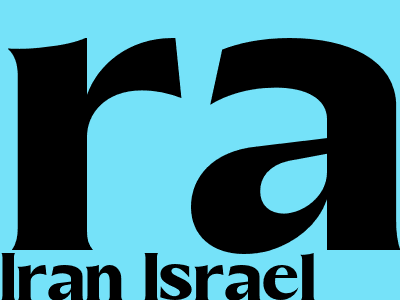
Iran and Israel: A Complex and Volatile Rivalry
Historical Roots of the Conflict
The animosity between Iran and Israel has a long and complicated history. Tensions date back to the creation of the State of Israel in 1948, which was strongly opposed by Iran's then-ruler, Mohammad Reza Pahlavi. Iran, along with many Arab nations, considered Israel's establishment as an injustice against the Palestinian people.
After the Iranian Revolution of 1979 and the establishment of the Islamic Republic, the conflict intensified. Iran's new leaders, led by Ayatollah Ruhollah Khomeini, adopted a staunchly anti-Israel and anti-Western stance. They accused Israel of being a Zionist entity that posed a threat to the entire Muslim world.
Ideological Differences
The conflict between Iran and Israel is also fueled by deep ideological differences. Iran, an Islamic republic, is a staunch supporter of the Palestinian cause and advocates for the destruction of Israel. Israel, on the other hand, is a predominantly Jewish state that sees Iran as an existential threat due to its nuclear program and support for militant groups in the region.
The two countries have also clashed over the issue of Hezbollah, a Lebanese militant group backed by Iran that has fought against Israel in several conflicts. Iran sees Hezbollah as a legitimate resistance movement, while Israel considers it a terrorist organization.
Regional and International Dynamics
The Iran-Israel conflict has also been shaped by regional and international dynamics. Iran's influence in the Middle East has increased in recent decades, and it has forged alliances with Syria, Iraq, and others. Israel, meanwhile, has been a close ally of the United States and has maintained strong diplomatic ties with many Arab countries.
The international community has been deeply concerned about the conflict between Iran and Israel. The United Nations has passed several resolutions condemning Iran's nuclear program and calling for peace in the region. The United States has also been heavily involved in efforts to mediate between the two countries.
Prospects for Peace
The prospects for peace between Iran and Israel remain uncertain. Both sides have shown little willingness to compromise, and the conflict has become deeply ingrained in their respective national identities. However, there have been some signs of potential for dialogue in recent years.
In 2013, Iran and the United States engaged in secret negotiations that led to the Joint Comprehensive Plan of Action (JCPOA), an agreement that aimed to limit Iran's nuclear program in exchange for the lifting of sanctions. The JCPOA was hailed as a potential breakthrough, but it has since collapsed, and tensions between Iran and the US have escalated again.
Despite the challenges, it is clear that both Iran and Israel face significant risks if the conflict continues to escalate. A full-scale war between the two countries could have devastating consequences for the entire Middle East region.